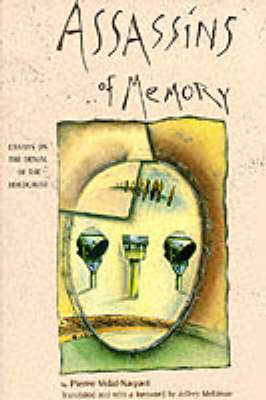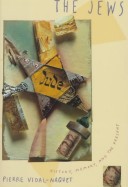European Perspectives: A Series in Social Thought and Cultural Criticism
2 total works
"Assassins of Memory" is a passionate and painstaking look at one of the more curious realities of recent French cultural life: the prominence accorded to the phenomenon of "revisionism". An attempt on the part of a tiny group of fanatics, often masquerading as scholars and researchers, to deny the existence of the gas chambers and horrors of Hitler's genocidal policies, revisionism is quietly gaining adherents. The movement has been most visible in France in the past decade, particularly because of the trial of Klaus Barbie and the writings of Robert Faurisson. Revisionists are more prevalent and are gaining followers in other countries, including the United States, where the "Journal of Historical Review" is devoted to revisionist thought and where a current presidential candidate has expressed what could be described as revisionist ideas. "Assassins of Memory" exposes revisionism for the deeply perverse enterprise it is, laying bare the mechanisms of lies and manipulations on which it is sustained. More than this, it asks searching questions about the underlying causes of revisionism and its influences and diffusion in France and elsewhere.
The book is particularly illuminating on the role the American linguist Noam Chomsky has played as writer of a preface to one of the movement's more influential tracts. Underlying Vidal-Naquet's argument is the question: is it acceptable for people to spread evil ideas, or should they be suppressed?
The book is particularly illuminating on the role the American linguist Noam Chomsky has played as writer of a preface to one of the movement's more influential tracts. Underlying Vidal-Naquet's argument is the question: is it acceptable for people to spread evil ideas, or should they be suppressed?
Pierre Vidal-Naquet, internationally celebrated author of Assassins of Memory: Essays on the Denial of the Holocaust, here takes readers on a fascinating journey through key phases of Jewish history over more than two millennia. Drawing on a vast reservoir of historical knowledge, Vidal-Naquet unravels a series of myths and ideologies that have become entangled with Jewish history over the centuries. The Jews covers subjects as deep in the past as the Jewish encounter with Hellenization in the second century B.C.E., and as current as modern-day Israeli-Palestinian relations. The Jews opens in the classical period, looking in particular at the work of Flavius Josephus, who wrote the original account of the events at Masada. Resisting the powerful currents of ideological orthodoxy, Vidal-Naquet examines what he views as Israeli nationalist distortions of the historical and archaeological record at Masada. In the promotion of an ideal of Jewish unity in the ancient world, he contends, some have chosen to ignore evidence of pluralism, civil strife, and the power of the Diaspora experience in the Jewish past. The book continues with an engaging discussion of the era of Jewish emancipation in Europe, during the French Revolution and thereafter, in which Vidal-Naquet explores the complex meanings of emancipation and assimilation. Employing previously unexamined material written by Alfred Dreyfus himself, he continues with a reevaluation of the Dreyfus affair, the episode of anti-Semitism and betrayal that shook France at the turn of the century. The Jews explores books, films, and eyewitness accounts of the Holocaust, including works by Arno Mayer, Claude Lanzmann, and Primo Levi. The booklooks also at a recently published wartime journal by Vidal-Naquet's father, written in the years before he was deported. Vidal-Naquet is equally concerned with the disturbing phenomenon of Holocaust denial, pointing to the question of the gas chambers as central to refuting revisio

